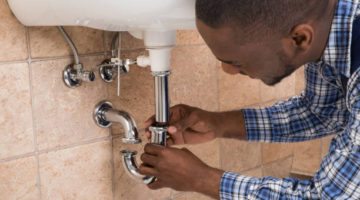 Hurricane season began on June 1. Below is a list of tips from Florida Power & Light on how to keep yourself and your family safe from electrical hazards throughout the season.
Hurricane season began on June 1. Below is a list of tips from Florida Power & Light on how to keep yourself and your family safe from electrical hazards throughout the season.
Before a Storm Threatens
• Have your trees properly trimmed to minimize their potential impact on your home and neighborhood. Make sure debris is cleared prior to a hurricane warning announcement when trash pickup is suspended.
• Do not attempt to trim any vegetation growing near any overhead power lines. Only specially trained, line-clearing professionals should work around power lines. When hiring landscapers or yard workers to trim your trees, remember to ask if they are
licensed, insured and qualified to trim vegetation around power lines.
• If someone in your home is dependent on electric-powered, life-sustaining medical equipment, review your family emergency plan for back-up power or make arrangements to relocate when a storm warning is issued.
Preparing for an Approaching Storm
• Before lowering a TV antenna or satellite dish, make sure to turn off and unplug the TV, and avoid power lines.
• Turn off all swimming pool pumps and filters, and wrap them in waterproof materials.
• Turn your refrigerator and freezer to their coldest settings ahead of an approaching storm to keep food fresh longer in the event of a power outage.
• Turn off and unplug any unnecessary electrical equipment.
• When working on a ladder, look up and note the location of power lines before you begin. Be sure that ladders or scaffolds are far enough away so that you – and the ends of the tools you’re using – don’t come within 10 feet of power lines.
Portable Generator Tips
• Never run generators inside your home or garage, as they produce potentially deadly carbon monoxide fumes.
• Keep generators away from all open windows, including neighbors’ windows, to prevent deadly exhaust from entering a home or business.
• Buy a battery-operated carbon monoxide alarm, which will alert you if carbon monoxide levels become dangerous.
• Always thoroughly read the manufacturer’s instructions to avoid dangerous shortcuts and ensure the safe operation of your generator.
• Don’t directly connect your generator to your home’s wiring. Power from a generator connected to a home's wiring will "back feed" into utility lines, potentially severely injuring or killing a neighbor or utility crew working to restore power.
• Turn off all connected appliances before starting your generator.
• Turn connected appliances on one at a time, never exceeding the generator’s rated wattage.
• Don't touch a generator if you are wet or are standing in water or on damp ground.
• Never refuel a hot generator or one that is running – hot engine parts or exhaust can ignite gasoline.
• Ensure you have plenty of gas for operation stored safely in gas containers.
After the Storm: When is it Safe?
Here are a few simple guidelines to help you and your family avoid injury after a storm passes.
• Stay away from standing water and debris, which could potentially conceal a live wire.
• Don’t venture out into the dark because you might not see a downed power line that could be energized and dangerous.
• Watch for downed power lines. Call 911 or FPL at 1-800-4OUTAGE to report fallen power lines that present a clear and imminent danger to you or others. Do not attempt to touch any electrical power lines, and keep your family away from them. Always assume that every power line is energized.
• If your roof or windows leak, water in your walls and ceiling may come into contact with electrical wiring. Immediately turn off your circuit breakers, disconnect all electrical appliances that are still plugged in, and turn off all wall switches. Remember, never stand in water while operating switches or unplugging any electrical device.
For the latest storm and electric safety tips and information anytime, visit www.FPL.com/storm. For more general information, visit www.FPL.com.












No Comment